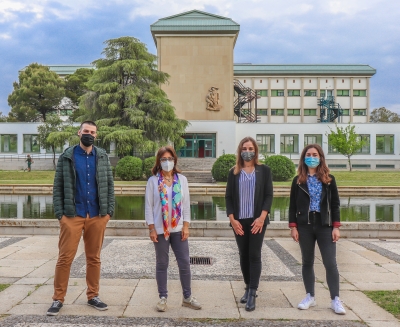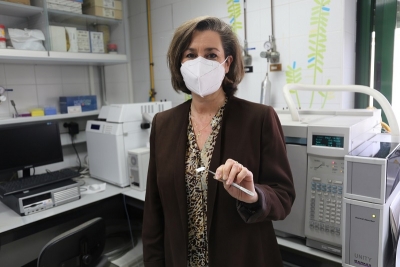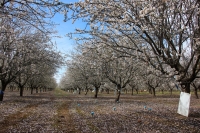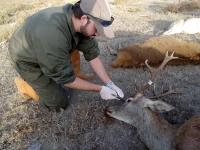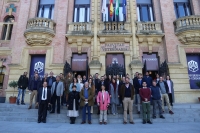IN-HABIT PROJECT | European Cities Include Disadvantaged Neighbourhoods in their Process to Create Healthy Spaces
Escrito por UCC+iCordoba's Las Palmeras area is one of the intervention areas for the testing of new inclusion measures for urban well-being as part of the European IN-HABIT project, led by the University of Córdoba
A rapid and sustainable method is designed to detect a greater number of ultraviolet filters in water samples
Escrito por UCC+iA paper systemfeaturing two different interaction zones, designed by personnel from the Department of Analytical Chemistry of the University of Cordoba in collaboration with the University of Valencia, allows the simultaneous extraction of compounds with high chemical variability.
Archaeometry Also Confirms thatthe Curia Pompeia in Rome Was Built in Several Phases
Escrito por UCC+iAn Italian/Spanish research project on the monument where Julius Caesar was assassinated, with the University of Córdoba participating, used archaeometric techniques to analyze construction materials and establish an indirect dating method for its archaeological structures
Severe irrigation restrictions due to drought would threaten almond plantations
Escrito por UCC+iResearchers at the Department of Agronomy of the UCO, IAS-CSIC and IFAPA have evaluated the physiological and productive responses to reduced or suspended irrigation during a single season on an irrigated almond plot, demonstrating that restrictive measures could threaten the plantations' survival
The first map showing the risk of exposure to the Crimean-Congo virus in deer populations in Spain
Escrito por UCC+iA model based on climatic determinants and on the study of antibodies in red deer (Cervuselaphus) populations makes it possible to map, throughout Spain, the circulation of the virus that causes Crimean-Congo hemorrhagic fever, which could facilitate the establishment of prevention programs
GEN4OLIVE PROJECT | The Olive Tree's Genetic Map Studied In Depth to Tackle the Challenges of Tomorrow
Escrito por UCC+iThe University of Córdoba oversees the GEN4OLIVE project, which is characterizing 500 olive tree varieties in order to ascertain their agronomic qualities and their behaviour in the face of different stresses, such as pests, disease, and the effects of weather and climate change.


